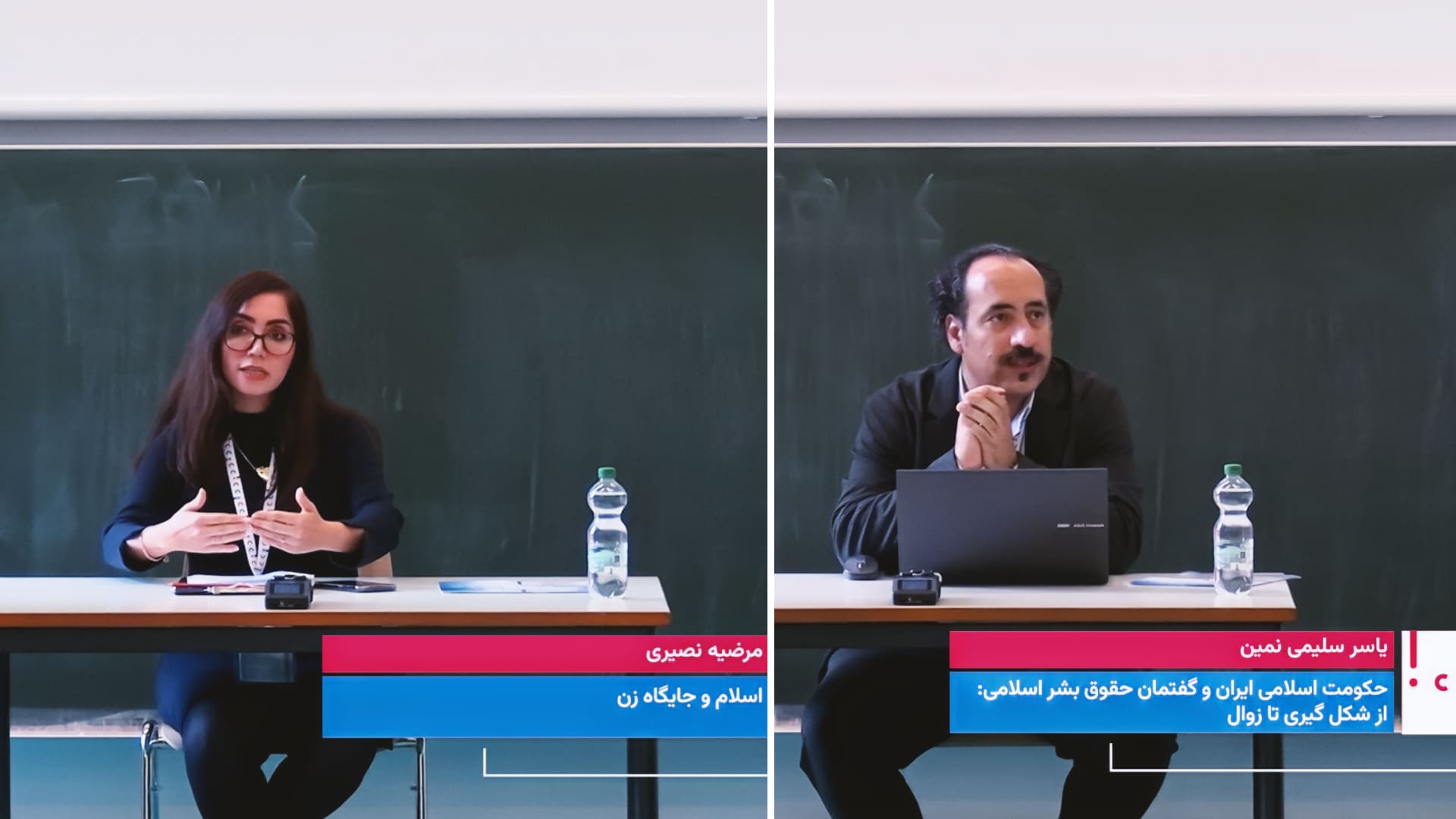Marzieh Nasiri
Islam and the Status of Women
Yasser Salimi Namin
Iran’s Islamic Government and Islamic Human Rights Discourse: From Formation to Decline
Moderator: Azadeh Fathi
Marzieh Nasiri
Islam and the Status of Women
Nasiri’s article examines the role of Islam in shaping the societal limitations imposed on women in Iran, particularly through the interpretation of Sharia law. The ongoing struggle of Iranian women for personal and social rights has intensified in recent years, and Nasiri emphasizes the need to explore the religious roots of these restrictions.
The article focuses on the “Quran”, the central text of Islam, which is often used as the basis for limiting women’s rights in Iranian society. Nasiri aims to investigate the explicit teachings of the Quran regarding women, independent of historical interpretations or hadith (prophetic traditions), to assess whether it is possible for women in Iran to achieve their rights within the framework of Islamic law. This scholarly inquiry attempts to address whether the demands of modern Iranian women can coexist with Islamic teachings, or if these demands are fundamentally at odds with religious doctrine. Nasiri’s approach is rooted in textual analysis of the Quran, making her study a direct comparison between Islamic scripture and the aspirations of Iranian women today.
Yasser Salimi Namin
Iran’s Islamic Government and Islamic Human Rights Discourse: From Formation to Decline
Salimi Namin traces the development and eventual decline of the “Islamic human rights discourse” in Iran, beginning with the “1979 revolution”. While the revolution initially invoked international human rights principles, the newly established Islamic regime quickly turned away from these ideals, creating a constitutional framework based on Sharia law. This marked the beginning of the regime’s complex relationship with human rights.
One key moment in this history was the creation of the “Cairo Declaration on Human Rights in Islam”in 1990, which was largely shaped by Iranian input. This declaration, supported by the “Organization of Islamic Cooperation (OIC)”, was intended to present an Islamic alternative to international human rights standards, justifying limitations on certain freedoms, particularly those related to women’s rights, religious freedom, and political dissent. Iranian scholar “Mohammad Taqi Jafari” played a prominent role in drafting this declaration.
However, over time, the international community and even some Islamic countries grew critical of the Cairo Declaration’s reliance on Sharia law. In 2020, a revised version of the declaration was adopted, known as the “Cairo Declaration on Human Rights of the OIC”. This new version removed direct references to Sharia, signaling a shift toward more universal human rights principles. Iran, which had once championed the original declaration, opposed the revisions and refused to join the consensus for its adoption.
Salimi Namin’s article details how Iran’s “Islamic human rights discourse” evolved over time, shaped by both internal pressures and international scrutiny. The revision of the Cairo Declaration marked a significant shift away from Iran’s interpretation of Islamic human rights, leaving the country increasingly isolated in its stance. Despite this international decline, the Iranian government continues to rely on the outdated 1990 declaration to justify its human rights practices domestically, even though it has lost credibility on the global stage.
Both articles highlight the challenges Iran faces in reconciling religious doctrine with modern human rights principles. Nasiri focuses on the “role of Islam in restricting women’s rights”, while Salimi Namin examines how Iran’s “Islamic human rights discourse” has been shaped by both religious and political factors, ultimately leading to its decline in the international arena.
Together, they provide a critical perspective on how religious interpretations and political agendas have impacted the rights and freedoms of Iranian citizens, particularly women, within both domestic and international frameworks.



